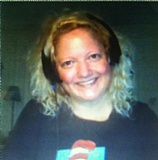Introduction
Denmark, a picturesque Scandinavian country known for its rich history, stunning landscapes, and vibrant culture, is a prime destination for travelers and tourists from around the world. While many Danes speak English fluently, making communication relatively easy for English-speaking visitors, showing an effort to speak the local language can go a long way in enhancing your travel experience. Let's explore some common Danish phrases for travel and tourism, helping you connect with the locals and immerse yourself in Danish culture.
Greetings and Politeness
These phrases will help you in everyday interactions and create a positive impression:
- Hej - Pronounced as "hey," this is the Danish equivalent of "hello." It's a friendly and casual way to greet someone.
- God morgen - This means "good morning" and is a polite way to greet someone in the early hours.
- God dag - "God dag" translates to "good day" and can be used throughout the day.
- God aften - Use "god aften" for "good evening" when the sun begins to set.
- Tak - To express gratitude, simply say "tak," which means "thank you."
- Undskyld - When you need to apologize or say "excuse me," use "undskyld."
- Ja - "Ja" means "yes," while "nej" is "no." These are fundamental for clear communication.
Basic Phrases
- Jeg taler ikke dansk - If you're struggling with Danish and want to say, "I don't speak Danish," use this phrase.
- Engelsk taler du engelsk? - When in doubt about language, ask "Do you speak English?"
- Hvad koster det? - If you want to know the price of something, say "Hvad koster det?" which means "How much does it cost?"
- Hjælp! - In case of an emergency or when you need assistance, "hjælp" is the word for help.
Transportation
Here are some common Danish phrases related to transportation that can be helpful for travelers:
- Hvor er togstationen? - This phrase means "Where is the train station?" and is useful if you're looking to catch a train in Denmark.
- Hvor er busstoppestedet? - If you need to find a bus stop, use this phrase, which translates to "Where is the bus stop?"
- Jeg vil gerne bestille en taxa, tak. - When you need a taxi, you can say, "I would like to order a taxi, please."
- Hvad tid går bussen/togene? - To ask about the departure time of buses or trains, use this question: "What time does the bus/train leave?"
- Hvor lang tid tager det at komme til...? - When you want to know how long it takes to get to a specific destination, say, "How long does it take to get to...?"
- Billet, tak - If you're buying a ticket for public transportation, you can simply say, "Ticket, please."
- Er der en metrostation i nærheden? - If you're in a city with a metro system and want to know if there's a nearby metro station, ask, "Is there a metro station nearby?"
- Hvor er lufthavnen? - To find your way to the airport, ask, "Where is the airport?"
- Kan du hjælpe mig med at finde en taxa? - If you need assistance in finding a taxi, say, "Can you help me find a taxi?"
- Er der en parkeringsplads her? - To inquire about parking availability, use the question, "Is there a parking lot here?"
Accomodation
When traveling in Denmark and looking for accommodation, it's helpful to know some Danish phrases to communicate effectively with hotel staff, hosts, or rental property owners. Here are some common Danish phrases related to accommodation:
- Jeg har en reservation. - This phrase means "I have a reservation." Use it when you've booked a room in advance.
- Jeg vil gerne booke et værelse. - When you want to make a new reservation, say, "I would like to book a room."
- Har I ledige værelser? - If you're arriving without a reservation and want to check for room availability, ask, "Do you have available rooms?"
- Hvad er prisen pr. nat? - To inquire about the price per night, say, "What is the price per night?"
- Kan jeg se værelset, før jeg beslutter mig? - If you want to view the room before making a decision, ask, "Can I see the room before I decide?"
- Er morgenmad inkluderet? - To find out if breakfast is included in the room rate, ask, "Is breakfast included?"
- Hvad tid er check-in/check-out? - To know the check-in and check-out times, ask, "What time is check-in/check-out?"
- Er der Wi-Fi på værelset? - In this digital age, many travelers want to know if there's Wi-Fi in the room, so you can ask, "Is there Wi-Fi in the room?"
- Kan jeg få et ekstra tæppe/pude/håndklæde? - If you need additional bedding, a pillow, or a towel, you can request it by saying, "Can I have an extra blanket/pillow/towel?"
- Er der en minibar på værelset? - To inquire about the presence of a minibar in your room, ask, "Is there a minibar in the room?"
Dining and Food
When dining in Denmark or interacting with locals in restaurants and cafes, it's helpful to know some Danish phrases related to food and dining. Here are some common Danish phrases for dining and food:
- Jeg vil gerne bestille... - This phrase means "I would like to order..." Start with this to indicate you're ready to order.
- Menukort, tak - To ask for the menu, say "Menu, please."
- En vand, tak - If you want to order a water, say "A water, please."
- Jeg vil gerne have... - Use this phrase to specify what you would like to have, followed by the item you want. For example, "Jeg vil gerne have en burger" means "I would like to have a burger."
- Hvad kan du anbefale? - To ask for a recommendation from the menu, say "What can you recommend?"
- Er der vegetariske retter? - If you're a vegetarian or looking for vegetarian options, ask, "Are there vegetarian dishes?"
- Hvordan tilberedes denne ret? - To inquire about how a particular dish is prepared, say "How is this dish cooked?"
- Kan jeg få regningen, tak? - When you're ready to pay and want to request the bill, say "Can I have the bill, please?"
- Er service inkluderet? - To check if service charge is included in the bill, ask, "Is service included?"
- Er der en dessertmenu? - If you want to know if there is a dessert menu, ask, "Is there a dessert menu?"
Navigation and Directions
When navigating through Denmark, it's essential to know some common Danish phrases to help you find your way around and ask for directions. Here are some useful Danish phrases for navigation:
- Hvor er...? - This phrase means "Where is...?" and is essential for asking directions to various places. For example, "Hvor er Tivoli?" means "Where is Tivoli?"
- Gå ligeud - To be instructed to go straight ahead, you can use this phrase, which means "Go straight."
- Sving til venstre - If you need to turn left, say "Sving til venstre."
- Sving til højre - To indicate a right turn, say "Sving til højre."
- Drej om - If you've made a wrong turn and need to turn around, say "Drej om," which means "Turn around."
- Til højre på næste gade - To get directions for turning right at the next street, say "Turn right at the next street."
- Til venstre på næste gade - Similarly, to turn left at the next street, use "Turn left at the next street."
- Lige overfor - When something is directly across from your location, say "Lige overfor," which means "Right across from."
- For enden af gaden - To ask about something at the end of the street, use "At the end of the street."
- Ned ad vejen - To ask about something further down the road, say "Down the road."
Conclusion
Learning a few common Danish phrases for travel and tourism can significantly enhance your experience in Denmark. While many Danes speak English, showing an effort to communicate in their native language can lead to more meaningful interactions and a deeper appreciation of Danish culture. Whether you're navigating the streets of Copenhagen or savoring traditional Danish cuisine, these phrases will help you connect with locals and make your trip to Denmark even more memorable. So, hej og god rejse! (Hello and happy travels!)















